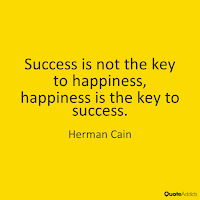It's that time of the year again where I look into the data for timekeeping over the past year to make sense where I spent my time, and cross-check with reality, in terms of my aspirations and goals that are split between different areas of my life by Personal & Professional areas. The idea is to gain insights from this data and re-calibrate areas of focus for the upcoming year.
Unfortunately, I haven't made much in the way of drastic progress in
2018 compared to
2017, the profile is largely the same - that my professional (work) life has consumed more time (a constant theme), my personal life in terms of family commitments are reasonably on track, and the biggest area of neglect is on my own personal, individual streams (hobbies, ideas, health and fitness). However, since I started the
RAGE model experiment, I have made some good wins on other areas, so the model works, but there's still more to be done in this area - specifically around outcome-based goals.
Recap my RAGE Model (Reality, Aspirations, Goals, Expectations) Tracking
I wanted to map out the different areas of my life that defines me, split by two major areas: Personal & Professional.
For each area, I defined some personas or streams. For example - in the Personal area, I'm a Husband, Father, Family-Man, Individual, etc. For the Professional area, I'm a professional (my main job), a colleague, etc.
For each Persona, I map out my current Reality, ideal Aspirations, and then from those two, set some Goals & align some Expectations to achieve.
Another aspect to this experiment was tracking my overall happiness and well-being. If I spent time in the areas of priority, the theory is it should count towards me being happier.
I prioritise the Personas using a simple matrix that defines how I value and rank them. I then use detailed time tracking to track the time spent doing activities for each area. The theory is that I should be focusing time and energy on the areas that reflect the ranking and priorities I set. This is the core data for analysis. For more details on how I actually do this, I am still using the manual ways as described in the
original posting. Since the original version of the Personas, I'm now on version 6 which currently looks like this:
 |
| Current Persona Matrix Rankings |
What this ranking does is basically show my decision-making rules: Life (Husband, Father, Family) is more important than Work (Job), which is more important than my Individual Personal streams (Hobbies, Pet Projects, Me Time, etc.). A simple-enough value system that I use to navigate through challenges.
It all looks good on the paper model, but in reality, the data highlights some food for thought that I really need to take action in 2019.
What are the big challenges for me?
What triggered my creating the RAGE model and start the detailed time tracking activities was essentially about accounting for my time, addressing the hard realities:
- Being a professional, i.e. having a stable income stream is currently a hard reality constraint. I need an income to support my family - so this is something I should not compromise on - but I still need to control it - I should not be overworking, at the expense of my personal life interests. So the data on work hours is important. When I read about pursuing dreams, passions, etc. about breaking out, taking risks, quitting your job etc. the reality around finances, lifestyle and family stability kicks-in - it's not an easy thing to do...this is a hard reality. I have to think of ways to ensure I do my best work, provide the best service to my employer, but not let work over consume me at the expense of my other streams (which as the data shows is not actually happening). Unless I can find a way to create a passive income stream outside of my main job, this constraint is going to be around for a while. The outcome for this year must be to bring my work-hours to a decent level freeing up time to focus on my personal interests.
- It's quite difficult to switch off from the office these days - even whilst at home, social media chats through Slack & WhatsApp are disruptions, that can't be tracked in hours - so whilst in "family mode", I must respond to chats - this time is unaccounted for. If I were to include all these moments as "work", then work-time increases...which is why this topic of "work-life integration" is becoming more mainstream.
- The functions of resting and sleeping for a human being is something that must be respected, and can't be compromised. I maintain an average of 8 hours of sleep per night, so this is a hard constraint. Eight hours has been validated as the ideal, I can go on for a few days with less sleep, but it's not sustainable. This means that the rest of my time must be allocated around this, with Work/Professional consuming a large chunk of this.
- Giving focus to my own personal interests as an individual, outside of being a Husband / Father / Family-Man, etc. seems like I'm sacrificing my own interests, i.e. putting myself last - and this is where the spiritual dimension of being a Muslim comes in to help - it's sometimes a struggle to deal with these frustrations.
2018 Data Insights - Tracking the Time / Hours spent
There was roughly 8,766 hours in 2018 (365.25 24-hour days), which I tracked and logged a total of 8,820 hours, which is not bad, the errors could be attributed to human error in logging (54 extra hours).
Where did the time go?
2018 Persona Hours, focus on Working Hours & Overall Happiness at work
There were 250 work days in 2018, excluding 12 public holidays. I took 34 days off as leave days, which left 216 work-days. Assuming an 8 hour workday, the capacity for work hours would be 1728 hours.
My actual work hours logged were 2155.4 hours, an excess of 427.4 hours as "overtime" which I don't really get paid for. This equates to an extra 53.4 days worked, an additional 2.5 months of extra work - which took away time from other areas, like for instance, time I could have used for my personal projects.
The table below summarises the major streams - highlighting in red, the months where work-hours exceeded the normal bounds. Overall split between life and work remains consistent with the previous two years, with my own personal individual streams taking much of the knock:
So it's clear that work-hours is an area to be controlled to free up time for allocating to personal, individual streams.
General Happiness & Well-Being at Work
I continue to track my overall happiness levels at work on a daily basis. I have also started tracking the bad days in terms of sleepless nights. In 2018 I had my fair share of stress at work that resulted in some nights where I hardly slept a wink, tossing and turning, worrying about issues at the office as well as my future in the company. This is a new stress that introduced itself last year, that I need to better manage. I tracked 12 sleepless nights, this is about 4% of the time. However, in general, the picture still looks good - I'm enjoying the work on the whole:

The last quarter of 2018 did see an increase in bad days - we had some challenges with the platform in terms of stability, new boss, changes in teams, and overall tensions and conflicts to manage & people resigning. This what triggered
my blog post on workplace 3.0 last year. Additionally, my health took a bad turn as well in November. The number of "indifferent / neutral" days seems to be increasing - an area to keep track of. But in the grand scheme of things, there is
more upside than downside at work, so this is still looking good! However, I do need to plan in personal time (leave days) more in the year to maintain a healthy balance.
Life in general is good, but my Personal streams are taking a knock
In general, overall - the time keeping does not contradict the priorities and rankings for my personas. I am also in a good space - health, wealth and mental space is in equilibrium (maybe this is because I've just done three weeks of of chilling out, relaxed summer vacation - back to office come Monday...). As I introduced the post earlier, on paper, I should be happy that my hours are reflecting the priorities I set & committed to...however, I can't help but feel a little down that overall my individual self interests are taking a knock...
In terms of the streams I see as my personal individual persona (i.e. the things I'm interested as person, outside of me being a Husband / Father / etc.), here's a view of the percentage focus per month (still highlighting the months where work exceeded the norm):
The positives highlighted in green:
- Reading books - did well enough to track against my goal of 24 books, ended up completing 21 books last year. Not bad.
- Spirituality - tracking very nicely, spent 10 days in seclusion in June, time well spent.
- Me Time - this is time I spend by myself, thinking, exploring or even binge-watching shows ;-)
The areas of concern are:
- Health & Fitness - dismal year. I had some health issues creep up on me last year. Not good.
- Cycling - very little done. According to my Strava logs: 29 days, 47 hours, 585km.
- Blogging - regressed big time - need to do at least one post a month
- Entrepreneur - my ideas still collecting dust. Pathetic, makes me really wonder about this!
Major Outcomes for 2019: Intent
Broadly speaking, here's some outcomes I'd like to focus on this year, the detail in terms of specific targets is still tracked manually in the
spreadsheet template:
- Professional
- Get work-hours down to a manageable level, target no more than 170 hours per month
- Continue to build a strong leadership team thus removing me as a bottleneck, focus on strategic outcomes, less operational
- Spread in more leave time, reduce sleepless nights to zero
- Personal - Individual - Entrepreneur
- Spec out my Rage/Personametry product idea and get an MVP done, even if it's manual
- Attend at least 6 Start-Up meet-ups this year
- Personal - Individual - Health
- Improve current fitness state - there should be no 0% activities in a month
- Personal - Life & Family
- Introduce consistency & routine into happiness building activities - at least once a month we should develop a routine around the things we enjoy doing as a family











